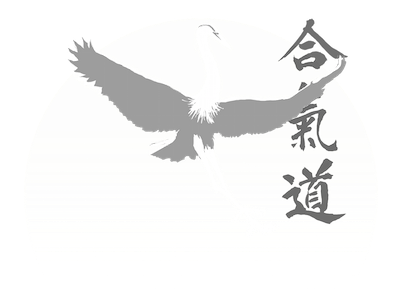Aikido teaches that effective self-defense requires responsiveness, rather than reactive movement. The practice of Aikido encourages intelligent action and cultivates precise movement. Self-defense skills acquired in training provide a broad range of responses to attack and also develop an attitude of protection for both self and aggressor. Aikido assumes that true victory is achieved when conflict is brought to peaceful resolution.
Everyone trains together, old and young, veterans and beginners, flexible and stiff. By training with different partners, one learns to shape the technique to fit each situation. One discovers how to find resolve in each encounter with each person. This is a practice that invites us to build a solid foundation in the art of living mindfully and skillfully.
The foundation of Aikido lies in the ideal of becoming empty like the sky. From this standpoint, the freedom of harmonious movement is born. Becoming empty means to discard all illusory thinking and mistaken ideas of self.
A little history:
Aikido is a martial art and spiritual discipline created by Morihei Ueshiba (1883–1969). The name Aikido consists of three parts: AI means harmony; KI refers to life energy, the essence of all things in nature; DO means a path or way. Thus Aikido can be thought of as the way to harmonize vital energy. It is a way to cultivate profound personal growth through martial arts practice. Aikido is the study of harmony within each person (mind, body and spirit), and ultimately, harmony with the universe. The self defense techniques practiced in Aikido teach us, in an experiential and physical way, the power of harmony which can transcend and eradicate violence.
Ueshiba, or O Sensei, of Aikido was born in 1883 in Japan. An exemplary martial artist, he combined his expertise with his spiritual and ethical insights to form modern Aikido. His genius was to discover that applied non-violence is one of the most potent weapons human beings possess. An experienced warrior, O Sensei realized that a true martial art must transcend concerns of winning and losing; it must be a means of personal transformation leading to the realization of the harmonious nature of the universe. Until his death in 1969, O Sensei dedicated himself to teaching and continual exploration of the Art of Peace.



